February 12 stands as one of history’s most eventful days, witnessing the rise and fall of empires, groundbreaking discoveries, and moments that shaped our modern world across centuries of human achievement.
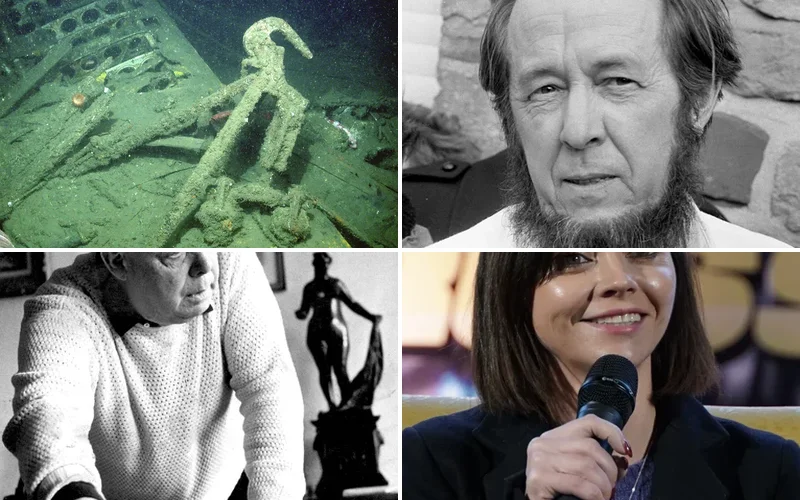
Politics and Government Events on February 12
1912 – Xuantong Emperor Abdicates
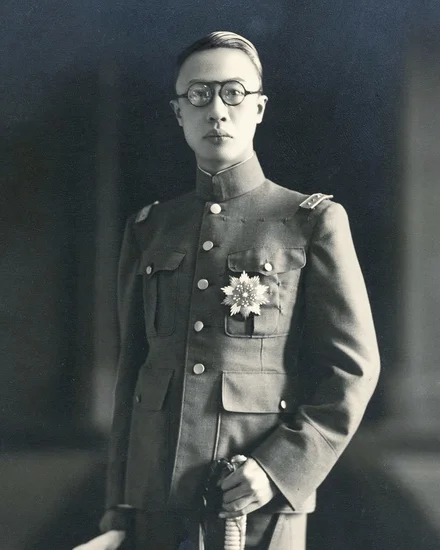
The last Emperor of China formally abdicated his throne, ending over two millennia of imperial rule. The Xuantong Emperor’s abdication marked the collapse of the Qing Dynasty and ancient Chinese monarchy.
This historic moment paved the way for the establishment of the Republic of China. The emperor’s resignation letter acknowledged the people’s desire for republican government over traditional imperial authority.
1999 – President Clinton Acquitted in Impeachment Trial

The United States Senate voted to acquit President Bill Clinton on charges of perjury and obstruction of justice. The impeachment trial concluded after months of intense political debate and partisan division.
Clinton became only the second president in American history to face impeachment proceedings. The Senate’s acquittal allowed him to complete his second term in office.
1990 – Carmen Lawrence Becomes First Female Premier
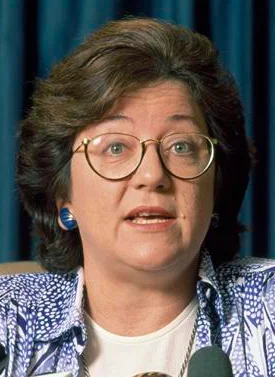
Carmen Lawrence shattered gender barriers by becoming Australia’s first female state premier in Western Australia. Her appointment represented a historic breakthrough for women in Australian politics.
Lawrence’s leadership opened doors for future female politicians across the continent. Her tenure demonstrated that women could successfully navigate the highest levels of government leadership.
2021 – Mongolia’s Constitution Takes Effect
The current Constitution of Mongolia officially came into force, establishing the framework for the nation’s democratic government. This document replaced the previous socialist-era constitution with democratic principles.
The new constitution enshrined fundamental rights and freedoms for Mongolian citizens. It created a multi-party system and established the foundation for Mongolia’s transition to democracy.
2019 – Republic of North Macedonia Renamed
The country formerly known as the Republic of Macedonia officially adopted the name Republic of North Macedonia. This change resolved a decades-long naming dispute with neighboring Greece.
The Prespa Agreement between the two nations finally settled the contentious issue. The name change allowed North Macedonia to pursue NATO and European Union membership without Greek opposition.
2002 – Slobodan Milošević War Crimes Trial Begins
The trial of former Yugoslav President Slobodan Milošević commenced at the International Criminal Tribunal in The Hague. Milošević faced charges of genocide, crimes against humanity, and war crimes.
This marked the first time a former head of state stood trial for war crimes. The proceedings represented a significant moment in international justice and accountability for wartime atrocities.
Military and Naval History on February 12
1946 – Operation Deadlight Concludes
World War II’s Operation Deadlight officially ended after successfully scuttling 121 captured German U-boats. The Allied forces systematically destroyed most of the Nazi submarine fleet in the Atlantic Ocean.
This operation eliminated the remaining threat of German submarine technology falling into hostile hands. The mass destruction of U-boats symbolized the complete defeat of Nazi Germany’s naval power.
1988 – Black Sea Bumping Incident
The Soviet frigate Bezzavetnyy intentionally rammed the USS Yorktown missile cruiser in Soviet territorial waters. The collision occurred while the American vessel claimed innocent passage through the Black Sea.
This Cold War confrontation highlighted growing tensions between the superpowers. The incident demonstrated both nations’ willingness to risk military escalation over territorial disputes.
1921 – Bolshevik Revolt in Georgia

Bolshevik forces launched a coordinated revolt in Georgia as preparation for the Red Army’s invasion. The uprising aimed to overthrow the independent Georgian government and establish Soviet control.
Local Georgian forces initially resisted the Bolshevik insurgency with limited success. The revolt marked the beginning of Georgia’s forced incorporation into the Soviet Union.
1919 – Makhnovshchina Regional Congress
The Second Regional Congress of Peasants, Workers and Insurgents convened at Huliaipole under Makhnovshchina leadership. This anarchist movement sought to establish self-governing communities in Ukraine.
The congress represented an alternative to both Bolshevik and White Army control. Nestor Makhno’s followers attempted to create a decentralized society based on anarchist principles.
Science and Discovery Milestones on February 12
1961 – Soviet Union Launches Venera 1

The Soviet space program successfully launched Venera 1 on its historic mission toward Venus. This spacecraft became the first human-made object directed toward another planet.
Venera 1 represented a major milestone in interplanetary exploration despite later communication failures. The mission demonstrated Soviet technological capabilities in the early space race.
2001 – NEAR Shoemaker Lands on Asteroid

The NEAR Shoemaker spacecraft successfully touched down on asteroid 433 Eros, becoming the first probe to land on an asteroid. The landing occurred in the asteroid’s “saddle” region after extensive orbital observations.
This achievement opened new possibilities for asteroid research and resource exploration. The mission provided unprecedented close-up data about asteroid composition and structure.
1947 – Sikhote-Alin Meteorite Impact

The largest observed iron meteorite until that time created a dramatic impact crater in Sikhote-Alin, Soviet Union. Witnesses reported seeing a brilliant fireball streak across the sky before impact.
The meteorite shower scattered iron fragments across a wide area of the Russian Far East. Scientists collected thousands of meteorite samples for analysis, advancing understanding of extraterrestrial materials.
1909 – NAACP Founded
The National Association for the Advancement of Colored People was officially founded by a diverse group of civil rights activists. The organization emerged from the Niagara Movement and other early civil rights efforts.
The NAACP would become America’s premier civil rights organization for decades. Its founding represented a crucial step toward organized resistance against racial discrimination and segregation.
Cultural and Arts Events on February 12
1994 – The Scream Stolen from National Gallery

Four thieves executed a daring heist at the National Gallery of Norway, stealing Edvard Munch’s iconic painting “The Scream.” The criminals broke into the museum and escaped with the masterpiece in broad daylight.
The theft shocked the international art world and made global headlines. The painting’s disappearance highlighted security vulnerabilities at major museums worldwide.
1947 – Christian Dior Unveils “New Look”
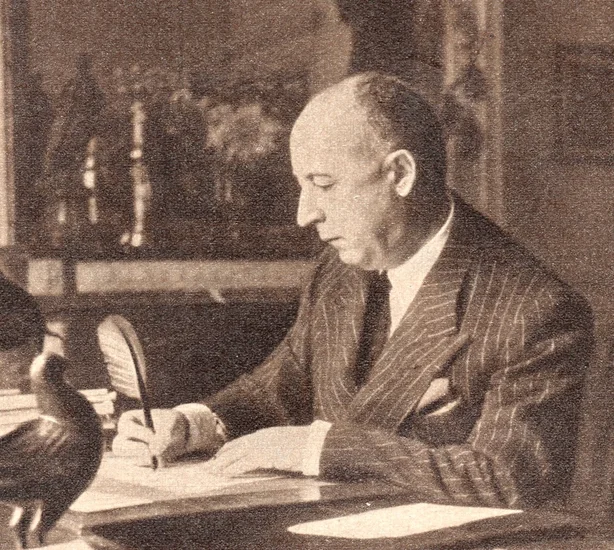
Christian Dior revolutionized post-war fashion by presenting his groundbreaking “New Look” collection in Paris. The designs featured cinched waists, full skirts, and luxurious fabrics that contrasted sharply with wartime austerity.
This collection helped Paris reclaim its position as the world’s fashion capital. Dior’s innovative designs influenced women’s fashion for decades and established him as a legendary couturier.
1974 – Aleksandr Solzhenitsyn Exiled
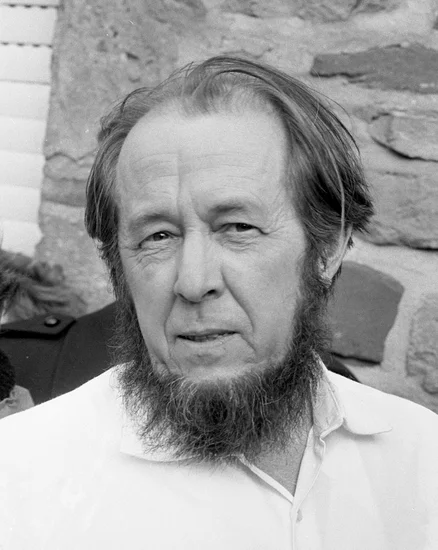
Nobel Prize-winning author Aleksandr Solzhenitsyn was forcibly exiled from the Soviet Union by government authorities. The writer’s critical works about Soviet labor camps had made him a target of state persecution.
Solzhenitsyn’s expulsion highlighted the Soviet government’s intolerance of dissenting voices. His exile brought international attention to human rights abuses within the Soviet system.
Religious and Social Events on February 12
2016 – Pope Francis Meets Patriarch Kirill

Pope Francis and Russian Orthodox Patriarch Kirill signed a historic Ecumenical Declaration during their unprecedented meeting. This represented the first encounter between leaders of the Catholic and Russian Orthodox Churches since their 1054 schism.
The meeting addressed global persecution of Christians and sought common ground between the two churches. Their declaration called for Christian unity in the face of modern challenges.
1966 – Rabbi Morris Adler Fatally Shot
Rabbi Morris Adler was tragically shot by a disgruntled congregant at Congregation Shaarey Zedek in Southfield, Michigan. The attack shocked the Jewish community and highlighted growing concerns about religious leader safety.
The incident occurred during a Saturday morning service in front of horrified worshippers. Rabbi Adler’s death prompted discussions about security measures at religious institutions.
1965 – Malcolm X Visits Smethwick
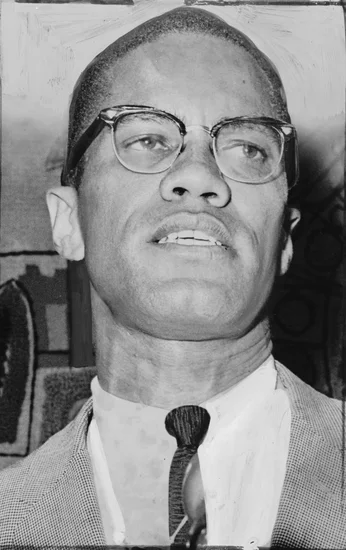
Civil rights leader Malcolm X visited Smethwick near Birmingham following the racially-charged 1964 United Kingdom general election. His visit drew attention to racial tensions in British communities.
Malcolm X’s presence highlighted international connections between civil rights movements. His visit demonstrated how racial issues transcended national boundaries during the 1960s.
1983 – Women Protest in Pakistan
One hundred women courageously protested in Lahore against military dictator Zia-ul-Haq’s proposed Law of Evidence. Police responded with tear gas, batons, and arrests, but the women’s resistance ultimately succeeded.
The protesters successfully repealed the discriminatory law through their determined activism. Their courage inspired future women’s rights movements throughout Pakistan.
Business and Economic Events on February 12
1935 – USS Macon Airship Crashes

The USS Macon, one of the largest helium-filled airships ever constructed, crashed into the Pacific Ocean off California’s coast. The massive dirigible sank after encountering severe weather conditions during a routine patrol.
This disaster effectively ended the U.S. Navy’s rigid airship program. The crash demonstrated the limitations of lighter-than-air craft for military and commercial applications.
1909 – SS Penguin Maritime Disaster
New Zealand experienced its worst maritime disaster of the 20th century when the SS Penguin sank and exploded at Wellington Harbour’s entrance. The inter-island ferry tragedy claimed numerous lives and shocked the nation.
The disaster prompted major improvements in maritime safety regulations. New Zealand authorities implemented stricter inspection procedures and emergency protocols for passenger vessels.
1963 – Northwest Orient Flight 705 Crashes

Northwest Orient Airlines Flight 705 crashed into the Florida Everglades shortly after takeoff from Miami International Airport. All 45 people aboard the aircraft perished in the tragic accident.
The crash investigation led to important aviation safety improvements. Airlines implemented enhanced crew training procedures and aircraft maintenance protocols following the disaster.
Transportation and Infrastructure on February 12
1963 – Gateway Arch Construction Begins

Construction officially commenced on the Gateway Arch in St. Louis, Missouri, marking the beginning of an ambitious architectural project. The monument would become an iconic symbol of America’s westward expansion.
The arch’s innovative design challenged traditional construction methods and materials. Engineers developed new techniques specifically for building the massive stainless steel structure.
2002 – Iran Air Crash Near Khorramabad

An Iran Airtour Tupolev Tu-154 crashed in mountains outside Khorramabad during its approach to the airport. The accident killed all 119 people aboard, making it one of Iran’s deadliest aviation disasters.
The crash highlighted safety concerns about aging aircraft fleets in developing nations. Investigators examined maintenance procedures and pilot training protocols following the tragedy.
2009 – Colgan Air Flight 3407 Crashes
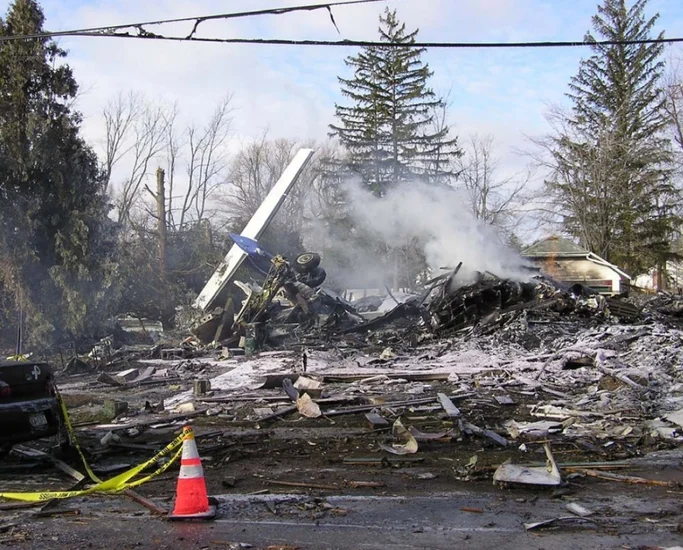
Colgan Air Flight 3407 crashed into a house in Clarence Center, New York, while approaching Buffalo Niagara International Airport. The accident killed all passengers and crew members plus one person on the ground.
The crash prompted significant changes in airline pilot training requirements. Federal authorities implemented new rules regarding pilot experience and fatigue management.
Sports and Recreation on February 12
1945 – Devastating Tornado Outbreak

A catastrophic tornado outbreak struck Mississippi and Alabama, killing 45 people and injuring 427 others. The violent storms devastated communities across both states during the deadly weather event.
The tornadoes destroyed thousands of homes and businesses throughout the affected regions. Emergency responders worked tirelessly to rescue survivors and provide medical assistance to the injured.
1946 – Isaac Woodard Assault

African American Army veteran Isaac Woodard was brutally beaten by a South Carolina police officer, resulting in permanent blindness. The savage attack galvanized the civil rights movement and inspired future activism.
The incident partially influenced Orson Welles’ film “Touch of Evil” and other artistic works. Woodard’s case highlighted the systematic violence faced by Black veterans returning from World War II.
1968 – Phong Nhị and Phong Nhất Massacre
The Phong Nhị and Phong Nhất massacre occurred during the Vietnam War, representing one of the conflict’s tragic civilian casualties. The event demonstrated the devastating impact of warfare on innocent populations.
This massacre contributed to growing anti-war sentiment in the United States. The incident highlighted the moral complexities and human costs of the Vietnam conflict.
Notable Births on February 12
1915 – Lorne Greene Born
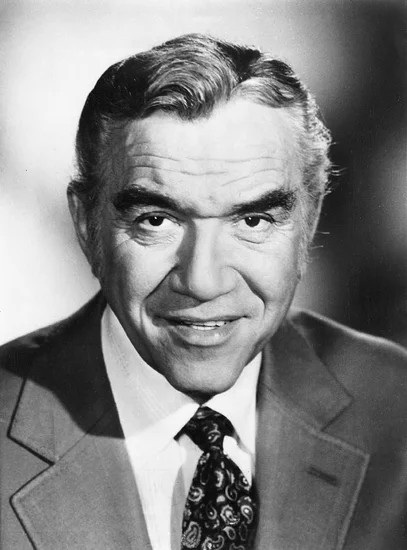
Canadian-American actor Lorne Greene entered the world in Ottawa, Ontario, destined for entertainment greatness. His distinctive voice and commanding presence would make him a household name.
Greene achieved fame as Ben Cartwright on the television series “Bonanza,” becoming one of TV’s most beloved father figures. His career spanned radio, television, and film over several decades.
1918 – Julian Schwinger Born
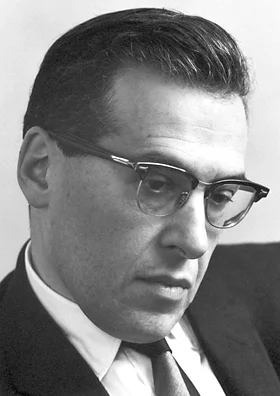
American physicist Julian Schwinger was born in New York City, beginning a life dedicated to scientific discovery. His childhood fascination with mathematics and physics shaped his future academic pursuits.
Schwinger would later win the Nobel Prize in Physics for his groundbreaking work in quantum electrodynamics. His contributions fundamentally advanced understanding of particle physics and electromagnetic interactions.
1934 – Bill Russell Born
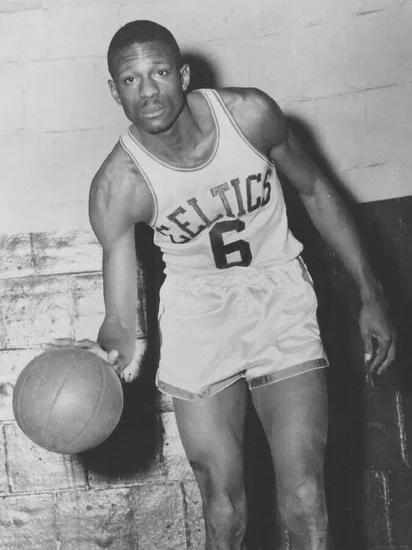
Basketball legend Bill Russell was born in Monroe, Louisiana, though he would find his destiny on the courts of Boston. His athletic prowess and leadership skills emerged during his high school years.
Russell became the cornerstone of the Boston Celtics dynasty, winning eleven NBA championships as a player. His defensive innovations and competitive spirit revolutionized professional basketball.
1942 – Ehud Barak Born

Israeli general and politician Ehud Barak was born in Mishmar HaSharon, beginning a life of military and political service. His leadership abilities became evident during his youth in the kibbutz movement.
Barak served as Israel’s tenth Prime Minister and became the country’s most decorated soldier. His military career included commanding elite units and planning significant operations.
1948 – Ray Kurzweil Born

American computer scientist and futurist Ray Kurzweil was born in Queens, New York, destined to become a technology visionary. His early interest in computers and artificial intelligence shaped his career path.
Kurzweil pioneered numerous technological innovations including text-to-speech systems and optical character recognition. His predictions about technological advancement have proven remarkably accurate over decades.
1969 – Darren Aronofsky Born

American film director Darren Aronofsky was born in Brooklyn, New York, beginning his journey toward cinematic recognition. His creative vision and psychological storytelling approach would define his career.
Aronofsky directed acclaimed films including “Black Swan,” “Requiem for a Dream,” and “The Wrestler.” His distinctive visual style and intense narratives earned critical acclaim and numerous awards.
1980 – Christina Ricci Born

American actress Christina Ricci was born in Santa Monica, California, launching a career that began in childhood. Her distinctive look and acting talent quickly gained industry attention.
Ricci achieved fame as Wednesday Addams in “The Addams Family” films before transitioning to complex adult roles. Her performances in independent films earned critical acclaim and established her as a serious actress.
Notable Deaths on February 12
1915 – Émile Waldteufel Dies
French pianist, composer, and conductor Émile Waldteufel passed away after a distinguished musical career. His compositions delighted audiences across Europe during the late 19th century.
Waldteufel became known as the “Waltz King of France” for his elegant dance compositions. His music provided the soundtrack for countless ballrooms and social gatherings throughout his era.
1942 – Grant Wood Dies
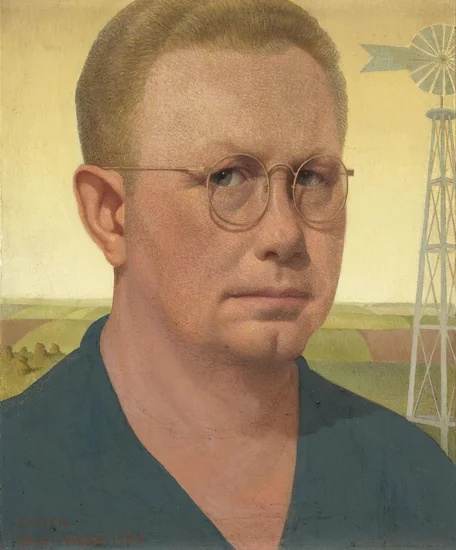
American painter Grant Wood died, leaving behind an iconic artistic legacy centered on rural American life. His realistic style captured the essence of Midwestern culture and values.
Wood’s masterpiece “American Gothic” became one of the most recognizable paintings in American art history. His work celebrated the dignity and character of ordinary American farmers and townspeople.
1979 – Jean Renoir Dies
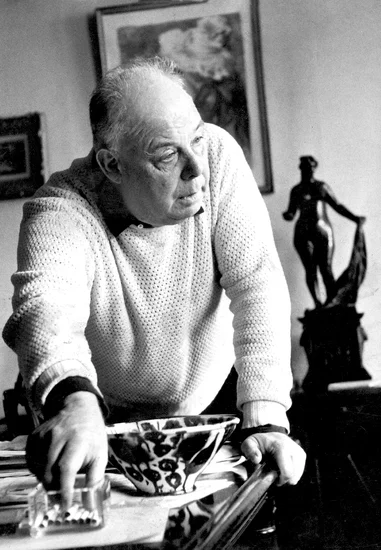
French film director Jean Renoir passed away, concluding one of cinema’s most influential careers. His humanistic approach to filmmaking influenced generations of directors worldwide.
Renoir created masterpieces including “Grand Illusion” and “The Rules of the Game,” films that redefined cinematic storytelling. His work seamlessly blended social commentary with artistic innovation.
2000 – Charles M. Schulz Dies

American cartoonist Charles M. Schulz died, ending the beloved “Peanuts” comic strip after nearly fifty years. His creation of Charlie Brown, Snoopy, and the Peanuts gang touched millions of readers.
Schulz’s final “Peanuts” strip appeared the day after his death, creating a poignant farewell. His characters became cultural icons that transcended comic strips to influence literature, television, and philosophy.
2000 – Tom Landry Dies

Legendary American football coach Tom Landry passed away after revolutionizing professional football strategy. His innovative coaching methods and distinctive sideline presence defined the Dallas Cowboys.
Landry led the Cowboys to five Super Bowl appearances and two championships during his coaching tenure. His stoic demeanor and strategic brilliance earned him recognition as one of football’s greatest coaches.
2017 – Al Jarreau Dies

American jazz vocalist Al Jarreau died, silencing one of music’s most distinctive voices. His unique vocal style blended jazz, pop, and R&B influences into a signature sound.
Jarreau won seven Grammy Awards and became the only vocalist to win Grammys in jazz, pop, and R&B categories. His innovative scat singing and vocal techniques influenced countless musicians worldwide.
Holidays and Observances on February 12
Darwin Day Celebrated Internationally

Darwin Day commemorates the birth of Charles Darwin and celebrates scientific discovery worldwide. Educational institutions and science organizations host events promoting scientific literacy and evolutionary understanding.
The observance encourages public appreciation for science and rational thinking. Communities organize lectures, museum exhibitions, and educational programs highlighting Darwin’s contributions to scientific knowledge.
Lincoln’s Birthday Honored in United States
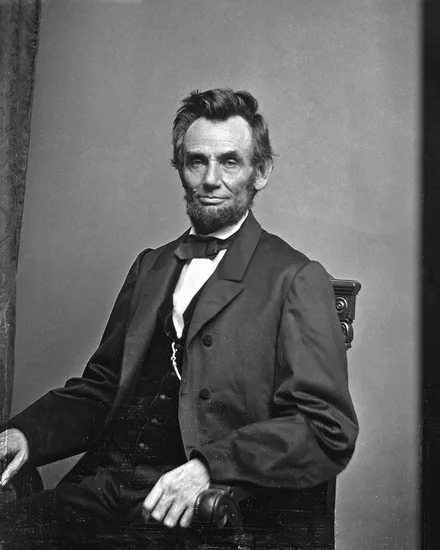
Lincoln’s Birthday celebrates the birth of President Abraham Lincoln, honoring his leadership during America’s Civil War. Many states recognize this day with official ceremonies and educational programs.
The holiday emphasizes Lincoln’s role in preserving the Union and ending slavery. Schools and civic organizations use this day to teach about American history and democratic values.
Red Hand Day Observed by United Nations

Red Hand Day raises awareness about the use of child soldiers in armed conflicts worldwide. The United Nations and humanitarian organizations campaign against the recruitment and use of children in warfare.
The observance highlights the plight of thousands of children forced into military service. Advocacy groups work to rehabilitate former child soldiers and prevent future recruitment.
Union Day Celebrated in Myanmar
Union Day commemorates the 1947 Panglong Agreement that unified various ethnic groups in Myanmar. The holiday celebrates national unity and the country’s diverse cultural heritage.
The observance includes ceremonies honoring the agreement’s signatories and their vision for a unified nation. Government officials and ethnic leaders participate in events promoting national reconciliation and cooperation.
